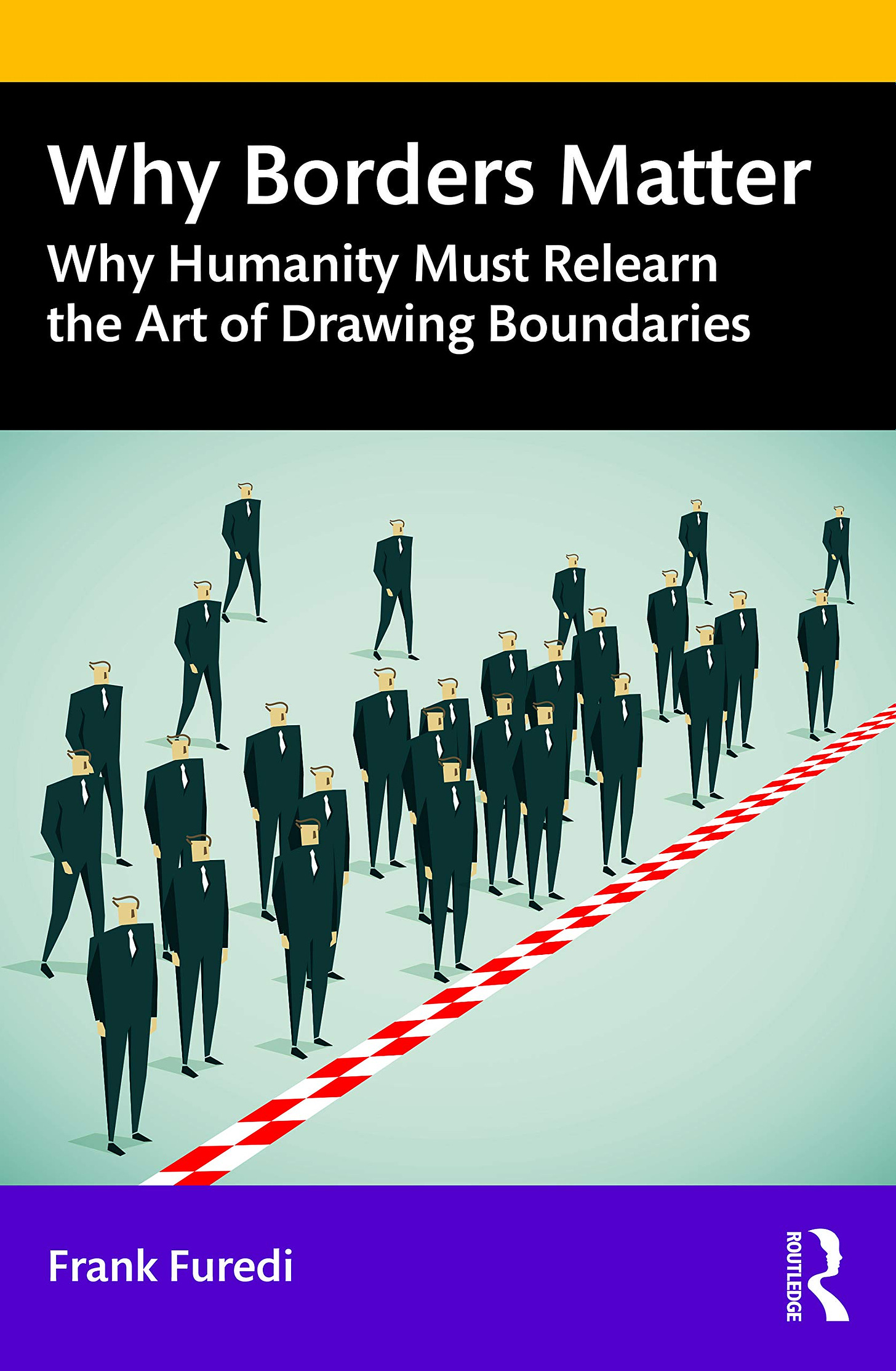If you were to casually glance at the different manifestations of contemporary culture, you might think that today, sex is everything.
Virtually every human experience – from the behaviour of infants to old age pensioners – is interpreted through the prism of sex. A great sex life is projected as a must. So-called sexual health experts go so far as to claim that a fulfilling sex life is a human right. They also insist they can help realise this goal for people of all ages. You can never be too young or old to benefit from their services. They assert that the elderly have a right to a sex life. Therefore, their goal is to provide care workers with guidance to ‘work effectively with issues of sexuality, intimate relationships and sex, particularly for older people living in care homes’. Their motto seems to be: ‘from the care home to the nursery!’ According to the sex education curriculum promoted by the World Health Organisation (WHO), children as young as five years of age need to learn that ‘it is natural for humans to enjoy their bodies and being close to others throughout their lives’. ‘Need to learn’ no less!
One of WHO’s missions is to explain to children that they need to understand that ‘physical enjoyment and excitement are natural human feelings, and this can involve physical closeness to other people’.Its experts believe that they have a duty to tend to the sexual needs of young children.
The most disturbing manifestation of the omnipresence of sex is its impact on young children. The boundary between adult and child has eroded across western culture through the sexualisation of the child. The border between public and private life has also disintegrated under the impact of the fetishisation of sex. The private ideal of intimacy risks becoming an anachronism in a culture that deems everything suitable for public display. Yet, at the same time, sex has become a very difficult and complicated territory. It has become a minefield in which people are continually warned about the risk of following their romantic instincts. According to ‘best practice’ advocated by experts, sex needs to be negotiated and formalised; in effect, to the point that relationships become transactional. People find it difficult to work out how to conduct their relations because there is a lack of clarity about which rules to follow.
Today’s sexual confusion is generally associated with the changing status of women and gender roles. However, the real source of confusion is that contemporary society has lost much of its capacity to give meaning to human experience. Consequently, there is a lack of clarity about the rules of engagement that prevail in contemporary adult life. The absence of taken-for-granted forms of acceptable social rituals and practices fosters a mood of apprehension towards the conduct of close and intimate relationships. Such attitudes do not simply influence marriage but all forms of close relationships, including friendships and relations at work. Frequently such attitudes conspire to turn sex into an affectation oriented for public consumption.
One important way that sex becomes deprived of meaning is through its medicalisation. The invention of the term ‘sexual health’ is symptomatic of the trend for treating this issue as a suitable subject for professional intervention. The medicalisation of sex is frequently promoted through health warnings about the danger of passion and love. Losing yourself in another person is diagnosed as a symptom of emotional deficits. We now have love addicts and sex addicts. The constant exhortation to ‘be yourself’ or to ‘attend to your needs’ helps estrange people from one another. It also serves to diminish our capacity to engage in intimate relations. Indeed, celebrants of what they refer to as solo sex render relationships redundant.
The medicalisation of sex
Since its inception, WHO has been in the business of stretching the meaning of health. Through expanding the definition of health, WHO has sought to medicalise a wide range of human experiences. This international body was founded on the assumption that society was sick and required the intervention of experts to find a cure. For WHO, health has a meaning that is very different from how normal people perceive it. The public health professionals associated with WHO regard it as a medium for managing the behaviours and lifestyles of people. From its foundation in the 1940s to today, a key objective of the founders of WHO was and remains to change society by challenging cultural norms.
Over the decades, the leaders of WHO have argued that health should not be defined simply in physical terms as the absence of disease or disability. It contends that it also had to encompass the mental and social dimensions of a person’s life. Consequently, WHO defined health as a ‘state of complete physical, mental and social wellbeing and not merely the absence of disease or infirmity’. Of course, ‘the state of complete physical, mental and social wellbeing’ is a utopian ideal that is unachievable in practice. It is unlikely that you will encounter anyone who lives in such a state of well-being. However, by expanding the definition of health to the point where it is simply an unachievable state, WHO could justify its busy-body intervention in different facets of people’s everyday lives.
WHO’s expansive definition of health left a lot to the imagination. In practice, it led to a shift in focus from problems that were susceptible to medical solutions to ones that required cultural and social interventions. Inevitably, sex and relations of intimacy became a target of the medical gaze. During the past 50 years, WHO has recast sex as a suitable target for medical intervention and treatment. From this standpoint, having a good sex life is not unlike enjoying a healthy bowel movement or 20/20 vision.
Through medicalising sex and turning a fundamental human relationship into a health problem, WHO has denuded it of its unique content. WHO’s invention of the term sexual health in 1974 and its acceptance by groups of influential professionals has played an important role in de-sexing sex. To justify its focus on sexual health, WHO called for ‘the integration of the somatic, emotional, intellectual, and social aspects of sexual being, in ways that are positively enriching’. In the decades to follow, its focus became the provision of a ‘pleasurable and safe sexual experience’. In effect, its idea of ‘good sex’ became an integral part of sexual health just as sexual health became a dimension of its definition of health and well-being. Moreover, linking the achievement of a ‘pleasurable and safe sexual experience’ to some form of therapeutic intervention decoupled it from its source in the conduct of intimate relationships.
Of course, most people aspire to have ‘pleasurable’ sexual experiences, but they also realise that this achievement depends on the quality of their relationships and on various influences that bear upon their emotions and passions. The realisation of such experiences has little to do with the health intervention of so-called sexual health experts. WHO’s transformation of pleasurable sex into a health issue provides this organisation with new opportunities to expand its activities into people’s private life and behaviour.
The WHO’s ever-broadening definition of health is an example of what some social scientists characterise as concept creep. In this case, the concept creep of the term health refers to its ambition of colonising more and more fields of human experience. In effect, through the medium of health, WHO’s guidance offers a system of administratively constructed norms that serve as an alternative to traditional forms of moral conduct.
Since the turn of the century, WHO has explicitly adopted identity politics and LGBTQ+-promoted norms as its own. Recently, it affirmed ‘gender-affirmative health care’ to demonstrate its embrace of trans culture. By straying into the territory usually monopolised by identity politics advocacy, WHO has become implicated in not only the desexualisation of sex but also its politicisation.
A WHO document, ‘Standards for Sexuality Education in Europe’, has very little to say about real sex and genuine sexual relations. Its definition of sexuality touches on virtually every dimension of human behaviour. It argues that ‘Sexuality is complex and includes biological, social, psychological, spiritual, religious, political, legal, historic, ethical and cultural dimensions that evolve over a lifespan’. It also insists that ‘sexuality is linked to power’. From this perspective, sexuality touches on everything.
Its version of sexuality education shows little knowledge or interest in real sex. Instead, it asserts that sexuality education:
‘enables children and young people to develop: accurate and age appropriate knowledge, attitudes and skills; positive values, including respect for human rights, gender equality and diversity, and, attitudes and skills that contribute to safe, healthy, positive relationships’.
Evidently, the point of sexuality education is not so much about enlightening students about sex but about promoting ideologically-informed objectives like respecting diversity and inclusion.
Implicitly WHO recasts sex as a public good – a medium for influencing public opinion – rather than a private affair. Sexuality education is assigned the role of promoting a variety of political ideals, such as respect for human rights, gender equality and diversity. This concept creep of the definition of sex mystifies it and renders it meaningless.
The advertising industry uses sex to sell consumer goods. Advocates of sexual health opportunistically instrumentalize sex to propagate their political ideals. By breaking down the boundary separating the public from the private, they have contributed to developing a culture that increasingly accepts pornography as normal. In different ways, all these institutions prey on the sexual needs of people.
De-medicalising sex would represent an important step in limiting the influence of sex entrepreneurs. But society's most important task is gaining cultural respect for maintaining the distinction between the public and private spheres. As I pointed out in my Why Borders Matter: And Why We Must Relearn The Art Of Drawing Boundaries, the loss of cultural valuation for the private sphere has morally disoriented society. Reconstituting and strengthening the boundary between the public and private spheres is the precondition for freeing society from its obsession with sex. It will also provide greater scope for the flourishing of intimate relationships.






